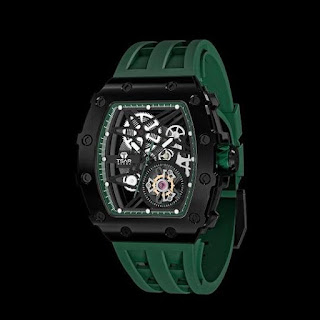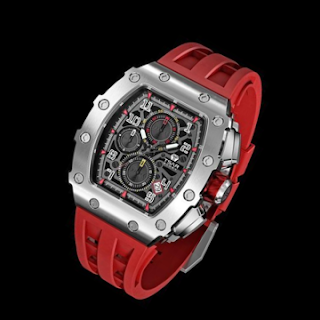Who is the Best Timekeeper quartz watch or a mechanical watch?
Are you looking to purchase a Men's watch but aren't sure which one to choose?
A broad range of watch movements are available on the market, ranging from quartz watches to mechanical watches, automatic watches, and smartwatches, among others.
Here, we will discuss the differences between quartz watches and mechanical watches, as well as which of these two has the greatest time-keeping mechanism to share with you today.
After the twentieth century, wristwatches began to acquire appeal among the general public, and they were soon worn by both men and women.
The mechanical movements that were formerly utilised in pocket watches were gradually phased out after 1970, when the quartz movement was introduced.
People are often perplexed since the majority of us are still unsure of the precise distinction between the two.
Basically, to put it in layman's words, a mechanical watch is one that measures the passage of time via the use of a clockwork mechanism as opposed to a quartz watch, which functions electronically with the use of a tiny battery.
Aside from the fact that the batteries need to be replaced, quartz movement is very precise and needs very little maintenance. Furthermore, since they are battery-operated and contain just a few moving components, these timepieces are quite inexpensive. Quartz watches aren't as popular among watch aficionados as mechanical timepieces since they lack the technical artistry and engineering that mechanical timepieces possess.
When it comes to Luxury Waterproof Watches , mechanical movements are often preferred over quartz movements because of the high degree of quality and workmanship that they provide.
Nonetheless, the option varies from person to person, since everyone wants to get the greatest wristwatch that they can find for themselves.
With regard to timekeeping, there is no better option than a quartz wristwatch. This is because a mechanical wristwatch will lose between 5 and 10 seconds every day, whereas a quartz wristwatch will lose around 4 seconds per month.
When compared to a quartz watch, the operating mechanism of a mechanical watch is more complicated, resulting in the loss of a few seconds.
Because quartz is a crystal, not all of them create the same amount of vibrations; the level of vibrations produced by each crystal varies depending on the kind of crystal and its form. The crystal of this sort of watch is often in the form of a bar or a tuning fork, depending on the design. When compared to other types of treatment, this is said to have the greatest outcomes.
Furthermore, mechanical watches are now available in two different variations: manual and automatic.
Essentially, there is no difference between the two.
Daily winding of manual watches is required, and this is normally done by the user before putting the watch on in the morning.
When it comes to automatic watches, they are quite similar to manual winding watches with the addition of a free-spinning rotor that rotates in reaction to your natural body motions, winding the mainspring continuously throughout the day.
As you can see, there is no "one size fits all" solution when it comes to picking between quartz and mechanical timepieces. The decision will still be subjective and will differ from person to person.


Comments
Post a Comment